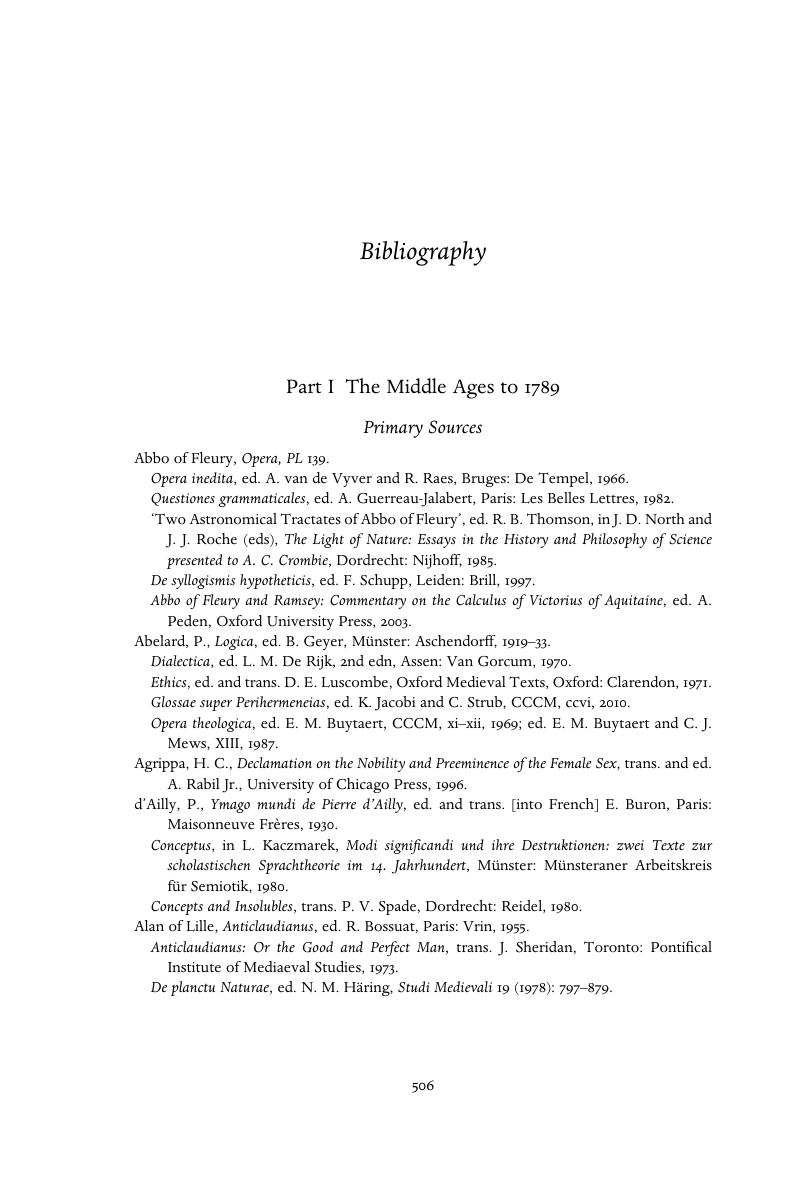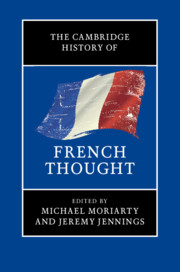Book contents
- The Cambridge History of French Thought
- The Cambridge History of French Thought
- Copyright page
- Contents
- Notes on Contributors
- Acknowledgements
- Abbreviations
- Introduction
- Part I The Middle Ages to 1789
- Part II From 1789 to the Present Day
- Conclusion: The End of French Thought?
- Bibliography
- Index
- References
Bibliography
Published online by Cambridge University Press: 25 April 2019
- The Cambridge History of French Thought
- The Cambridge History of French Thought
- Copyright page
- Contents
- Notes on Contributors
- Acknowledgements
- Abbreviations
- Introduction
- Part I The Middle Ages to 1789
- Part II From 1789 to the Present Day
- Conclusion: The End of French Thought?
- Bibliography
- Index
- References
Summary

- Type
- Chapter
- Information
- The Cambridge History of French Thought , pp. 506 - 553Publisher: Cambridge University PressPrint publication year: 2019



